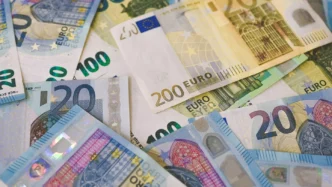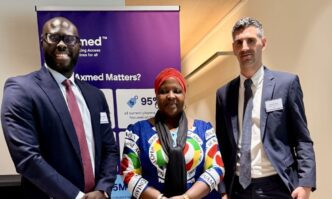While many banks around the world still talk about going digital as a future milestone, Freedom Bank Kazakhstan is already living in that future. Under the leadership of Timur Turlov, founder and CEO of Nasdaq-listed Freedom Holding Corp., the bank has built an ecosystem where users can secure mortgages, buy cars, start businesses, and manage currency—all without setting foot in a physical branch. Everything happens online, within a single app.
In Kazakhstan, digital banking isn’t a pilot—it’s the standard. And Freedom Bank is leading the charge with a level of integration and efficiency that’s rare even by global standards.
In just four years, Freedom Bank has issued 33,500 digital mortgages worth $1.2 billion. The application, approval, and contract signing all take place online. Thanks to tight integration with 34 government databases, AI-driven automation, and streamlined workflows, the average mortgage approval time has dropped from two weeks to just 24 hours.
According to Turlov, the bank receives over 40 mortgage applications every hour—a scale that wouldn’t be possible without advanced digital tools. And the cost efficiency is equally impressive. Processing a mortgage in the U.S. costs around $10,500. At Freedom Bank, it’s just $220 per application.
A SuperApp That Goes Beyond Banking
Freedom Bank isn’t just digitizing old systems—it’s redefining what a bank can be. Its mobile app functions as a true SuperApp, merging financial services with lifestyle features. Users can open deposits, pay bills, buy airline tickets, shop online, manage insurance, and even subscribe to services—all from one interface.
This level of vertical integration, while common in platforms like WeChat or Grab, is virtually unheard of in financial institutions outside Asia. And in Central Asia, Freedom Bank is the first to pull it off at scale.
Car loans, once a seven-day ordeal, are now approved in as little as 12 hours. More than 21,000 vehicles have been financed through the platform, amounting to $712 million in loans. Insurance and fraud protection are bundled in seamlessly.
Small businesses haven’t been left behind. Entrepreneurs and LLPs can now apply for loans online, with many approvals happening in under 24 hours—and sometimes as fast as 12 minutes. Out of 1 million applications, 30,000 have been approved, totaling $443 million in funding.
Turlov believes this marks a major shift: “Globally, small business lending is seen as risky and expensive. But here, we’ve flipped the model. Kazakhstan is ahead of many developed markets in this area.”
Loyalty That Pays Like an Investment
Perhaps the most forward-thinking piece of the ecosystem is Freedom Currency—a loyalty system unlike any other. Instead of points, customers earn a digital currency tied to Freedom Holding’s stock price. It’s a reward system and investment vehicle rolled into one.
As customers spend within the ecosystem, they earn cashback in Freedom Currency. It’s tradable, transferable, and usable for purchases or savings. Since launch, the value of Freedom’s shares—on which this currency is based—has doubled from $70 to $140. This creates a rare alignment between customer loyalty and company growth, blending retail finance with equity incentives in a way most banks haven’t dared to try.
Turlov puts it simply: “We’re building more than a bank—we’re creating an ecosystem where people can live, spend, earn, and grow.”
While global banks are still experimenting with digital pilot programs, Freedom Bank Kazakhstan has already operationalized the future. And if things continue on this path, the next wave of fintech innovation might not come from Silicon Valley—but from Almaty.
Turlov is now eyeing Europe, confident that Kazakhstan’s homegrown technology—paired with Freedom’s full-stack digital ecosystem—has global appeal. While Western neobanks offer some of these features, few can match the scale, speed, and government integration Freedom has already achieved.













